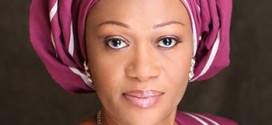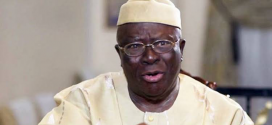Literature: Considered the father of African literature, Ugandans’ love for Achebe’s works was reflected at the symposium organised in his honour on April 16.
This is not dancing on the graves of the dead but the recent death of Nigerian author Chinua Achebe has come as a blessing to Uganda after Makerere Institute of Social Research (Misr) in collaboration with the Literature Department and Fountain Publishers Limited set up a Chinua Achebe Prize for undergraduate students.
The details of the prize will be announced in three months, said MISR director, Prof Mahmood Mamdani, at a public symposium in honour of the writer of the blockbuster novel, Things Fall Apart, who died on March 22, 2013.
At the symposium, which took place in the Makerere University main hall on April 6, 2013, Achebe was extolled as a man who lived his life as “an arrow in the bow of God” and the father of African literature who will live on in the hearts of his readers and his 50 works: “An enormous contribution to the world of art, ” according to Prof Abasi Kiyimba.
If you thought only impressionable youths get star struck, you should have been there to hear the professors of literature narrate their personal experiences with Achebe! Prof Arthur Gakwandi left Dr Susan Kiguli green when he revealed that his first ever experience in a real limousine was when Achebe gave him a lift from Long Island to Manhattan. “Every time people praised him, he would say ‘but I have really written so little’, ’’ said Gakwandi of Achebe’s self-effacement. It got me wondering if the man battled inner pressures to write more and justify the father of African literature label the world had pinned on him.
He fought against racism
Achebe was lauded for returning the punches on “racist” writer Joseph Conrad, who in Heart of Darkness depicts Africans as savages without social skills, and for rejecting what Prof Kiyimba called “missionary effort to malign African culture.”
Achebe was lauded for returning the punches on “racist” writer Joseph Conrad, who in Heart of Darkness depicts Africans as savages without social skills, and for rejecting what Prof Kiyimba called “missionary effort to malign African culture.”
The debate that has long brewed between Achebe and Ngugi wa Thiong’o over what should be the language of expression of an African writer rippled again. Yusuf Serunkuma said the Luganda version of Things Fall Part is far richer than the English version and urged writers to consider writing in indigenous languages. But many stuck with Achebe who loved English for its universality but gave it an African feel employing African proverbs and fireside stories from our ancestors, making his writings distinctly African, linguistically and technically.
Emotions cracked the ceiling at the unfairness of Achebe not winning a Nobel Prize for literature: “But Achebe didn’t need it really; his achievements far surpassed any imaginable prize,” argued a member of the audience.
A lecturer in the School of Law, Dr John Jean Barya, commended Achebe as a nationalist and pan-Africanist who rejected two awards from the contaminated hands of the Nigerian government: “Uganda is creating many ‘heroes’ through many medals. Medals that don’t come from worthy hands should be refused.”
A lecturer in the School of Law, Dr John Jean Barya, commended Achebe as a nationalist and pan-Africanist who rejected two awards from the contaminated hands of the Nigerian government: “Uganda is creating many ‘heroes’ through many medals. Medals that don’t come from worthy hands should be refused.”
Dr Susan Kiguli said the Department of Literature, which she heads, owes its existence partly to Chinua Achebe whose works, comprehensively taught there “have changed the direction of our thinking; compelled us to be sharply aware of matters of culture, history and world affairs, and imparted upon us that literature can change the world.”
Achebe’s literature, said Prof Kiyimba, “liberated Africa from the accusation of lack of literature.” This reminded me of a saying in Things Fall Apart that an old woman is always uneasy when dry bones are mentioned in a proverb.
I became that uneasy “old woman” recalling a 1965 article in which Prof Taban lo Liyong decried East Africa’s literary barrenness, and particularly called Uganda “a literary desert.” But thanks to Achebe, his first novel earned African literature global recognition and filled Africans like Dr Okello Ogwang with pride when he found it on the “menu” during his graduate studies in North America.
The novel and subsequent others also inspired many Africans to become men of letters, including Prof Austin “Mwalimu” Bukenya whose novel, The People’s Bachelor, is considered by some, including yours truly, as the finest Ugandan novel. “He who brings kola brings life,” goes another saying in Things Fall Apart. Achebe had clearly brought literary kola to Africa!
Prof Mamdani called the symposium “an occasion to celebrate and an occasion for testimony” but it was far more than that. It sparked off critical thinking and logic and emboldened some speakers to pose tough questions: “What is the importance of being here and celebrating everything Achebe stood for without applying them?” one speaker wondered out aloud, and challenged the professors of literature to live to the billing and write more to educate and advise society as significantly as Achebe did.
Broadcaster Joel Isabirye, who donated Shs5m to the Achebe Prize, also questioned the role of academicians in Africa who he feels have mostly betrayed the continent. He challenged African academicians in the diaspora to rise above the “trappings of wealth” and return to play their part in building the continent. “Why didn’t Achebe live in Africa?” asked Isabirye. “Everyone here says Achebe was a great man but what defines greatness?”
The moderator, Prof Mamdani, played the time-is-gone card; denying panelists an opportunity to answer. But he wittily concluded that the dialogue was the beginning of a greater promise as surely as the crammed house could testify that Ugandan literature is still alive; that it is not over with our reading culture yet. Budding writers were particularly inspired to keep the spirit of Chinua Achebe alive by striving for excellence and staying firm in our culture and literature, which Dr Ogwang called the “essence of our being.”
 Hottestgistnaija.com
Hottestgistnaija.com



